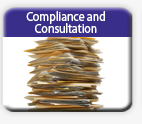(Supreme Court Act Sections 51 and 52 apply)
All persons (including Bermudians and non-Bermudians) applying for admission must have the following qualifications:
(a) be of good character;
(b) possess Bermudian status, or be a spouse of a Bermudian, or if non-Bermudian, have resided in Bermuda for one year within the previous fifteen years;
(c) if non-Bermudian, but not a spouse of a Bermudian, hold a work permit allowing employment as a barrister and attorney;
(d) have passed the final examination required for qualification as a barrister in England and have served a pupillage of at least twelve months in a barrister's chambers in England or Bermuda, or partly in one and partly the other; or
(e) have passed the final examination required for qualification as a solicitor in England and have served articles of at least one year in England or Bermuda or partly in one and partly in the other; or
(f) be entitled to practise in any court in any of Her Majesty's dominions and possess a qualification as to standard, law, practise, procedure and practical experience comparable to those of barristers and solicitors admitted to practise in England.
The procedure for applying for admission calls for the filing in the Supreme Court of Bermuda of a Notice of Motion supported by the following:
(a) if admitted to practise as a barrister in England:
(i) a certificate of the applicantís call to the Bar; and
(ii) a certificate from the barrister or the barrister and attorney with whom he served his practical training starting the dates between which that training was served; or
(b) if having passed the final examination required for qualification as a solicitor in England:
(i) a certificate to confirm the final examination to qualify as a solicitor was passed, and
(ii) a certificate from the solicitor or the barrister and attorney with whom he served his practical training stating the dates between which that training was served; or
(iii) a certificate of his admission as a solicitor of the Supreme Court of Judicature in England;
(c) Documentary evidence that he is a person entitled to practise in a court of any of Her Majesty's dominions; and
(d) an affidavit in approved form as to identity, good character, fitness, residence in Bermuda or Bermudian status.
The Supreme Court of Bermuda may, on special grounds, and on such terms as it may deem reasonable, exempt any person from complying with any of the above formalities.
It has been established that persons admitted to practise as barristers and/or solicitors in the common law provinces of Canada, Australia, New Zealand, Scotland and Northern Ireland are qualified for admission in Bermuda. Applicants qualified by admission to practise in one of Her Majestyís dominions must support their application with certificates equivalent to those required of applicants qualified as barristers or solicitors in England. If qualified in the West Indies, one yearís practical training is required before call, but any practical training done in the West Indies may count.
Bermudians, having passed the examinations and done all their practical training in England may be admitted to practise in Bermuda immediately upon return to Bermuda. Once admitted the Bermudian may practise law alone, as an associate or in partnership.
Non-Bermudians must be employed by a Bermudian barrister and attorney. Prior to commencement of employment the prospective employer must make an application to the Department of Immigration for a work permit allowing employment. The duty of the Department of Immigration is to protect and promote the employment prospects of Bermudians. Accordingly, as a matter of policy, a prospective employer is obliged to advertise an employment opportunity for at least three days in a local newspaper and if there are no qualified Bermudian or spouse of a Bermudian applicants, then the Department of Immigration will consider the grant of a work permit.
Once the work permit has been issued, the non-Bermudian applicant may take up residence in Bermuda and work as a registered associate, that is to say, he or she may work under the supervision of his or her employer and subject to the Rules of the Association doing all the types of work normally done by a barrister and attorney, save the conduct of actions in any court. When the applicant has completed one yearís residency, he or she may apply for admission and once admitted, he or she may practise law only as an employee of a Bermudian. If the non-Bermudian had been resident in Bermuda for a period of one year within the past fifteen years, that person would not be required to be a registered associate for one year and could be called to the Bar on obtaining a work permit.
Rev. Aug 28 96


